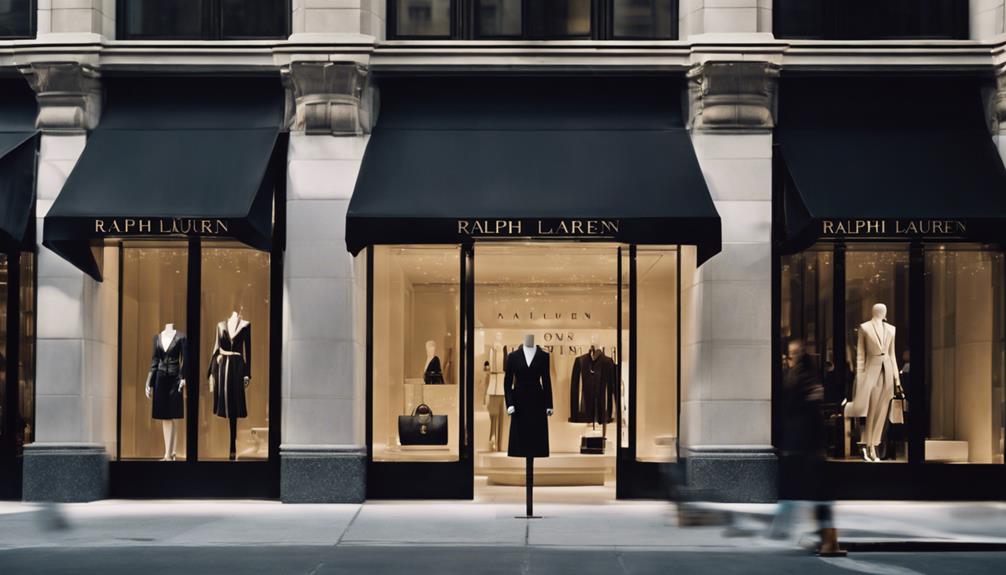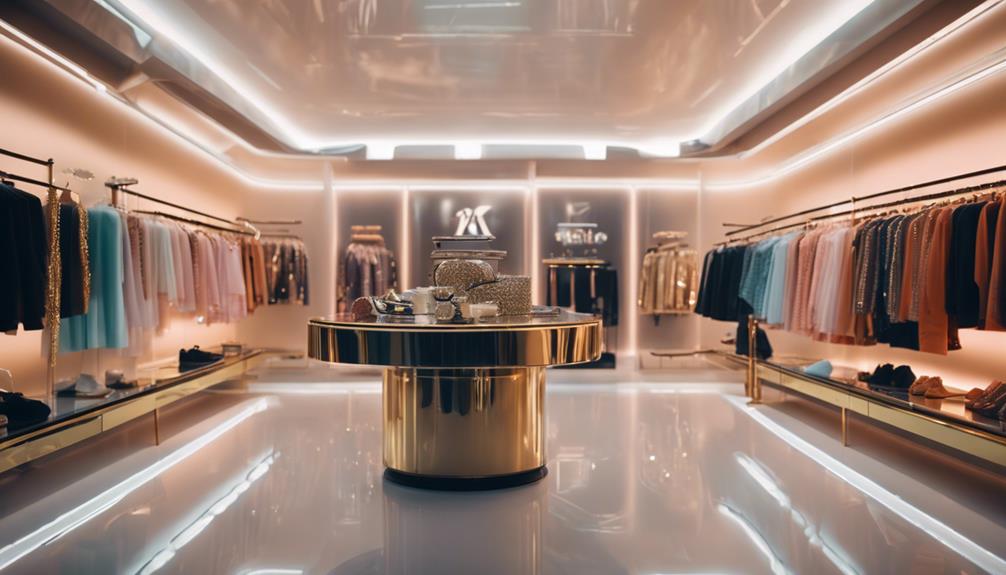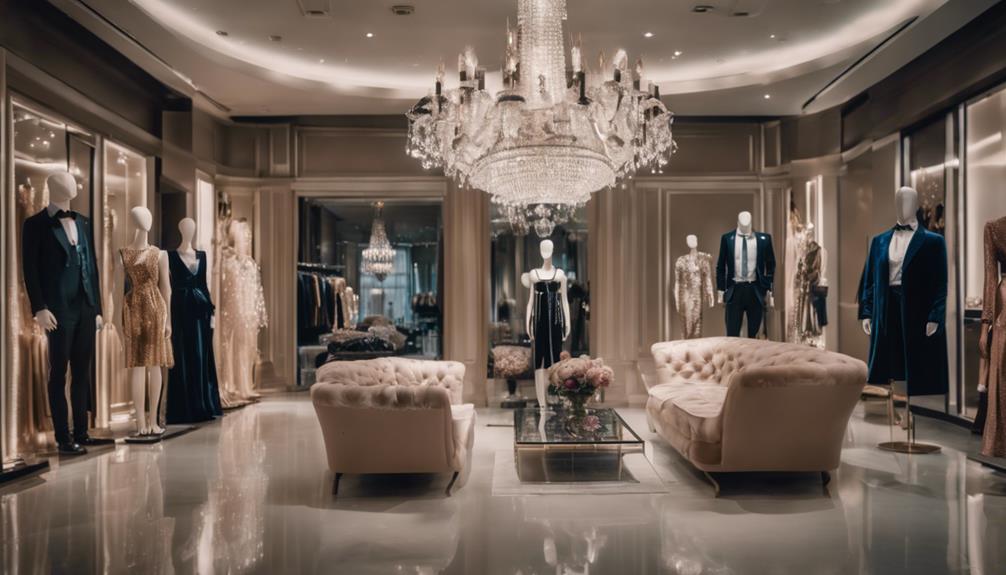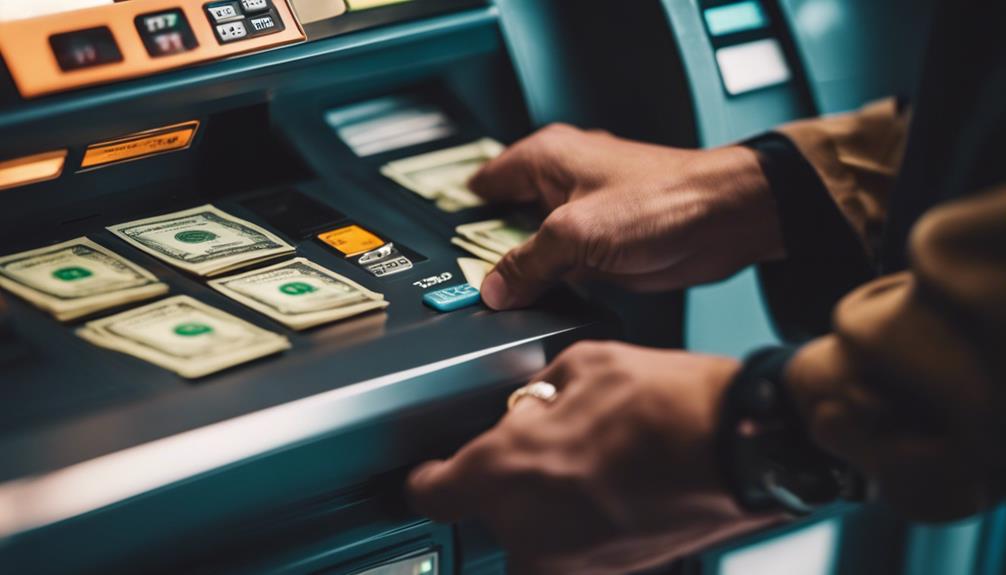LVMH is eyeing its next iconic fashion acquisition, with Ralph Lauren as a potential target. The luxury giant aims to enhance its portfolio, which already boasts 75 renowned brands. Recent challenges for Ralph Lauren, including a fragmented brand image and outdated perceptions, present an opportunity for LVMH. Under Alexandre Arnault's leadership, LVMH focuses on modernization and innovative marketing strategies to attract younger consumers. As the demand for digital experiences grows, LVMH's ongoing acquisition strategy could reshape the luxury landscape. There's much more to explore regarding these developments and their implications for the industry.
Key Takeaways
- LVMH's acquisition strategy aims to enhance its extensive portfolio of 75 luxury brands, solidifying its market dominance.
- The landmark acquisition of Tiffany & Co. for $15.8 billion in 2021 exemplifies LVMH's commitment to iconic luxury brands.
- Ongoing discussions about acquiring Ralph Lauren indicate LVMH's interest in modernizing and revitalizing legacy brands.
- LVMH's leadership under Alexandre Arnault emphasizes innovative marketing strategies to attract younger consumers.
LVMH's Acquisition Strategy Overview
Leveraging its extensive portfolio of 75 brands, LVMH is strategically focused on acquisitions to enhance its market position and appeal to younger consumers.
The company's landmark acquisition of Tiffany & Co. for $15.8 billion in January 2021 underscores its commitment to strengthening brand equity.
Reports indicate ongoing discussions regarding the potential acquisition of Ralph Lauren, highlighting LVMH's keen interest in expanding its luxury offerings.
With key figures like Alexandre Arnault leading modernization efforts at Tiffany, LVMH aims to attract a younger demographic through innovative marketing strategies, including celebrity endorsements.
Challenges Facing Ralph Lauren

Ralph Lauren faces significant challenges, including a fragmented brand image and outdated perceptions that hinder its appeal in today's competitive luxury market. Analysts have criticized the brand's holiday department store displays as uninspiring, further detracting from its once-iconic status.
The pandemic forced Ralph Lauren to reevaluate its strategies, revealing a pressing need to adapt to the increased demand for stylish going-out wear. While the brand has made strides in digital expansion, including a metaverse clothing collection, it struggles to create a cohesive identity.
Modern consumers seek innovative experiences, and Ralph Lauren must reestablish itself as a relevant contender. Without significant changes, the brand risks losing its footing in a rapidly evolving luxury landscape.
Emerging Market Trends

Emerging market trends in the luxury sector highlight a growing demand for innovative and engaging brand experiences that resonate with modern consumers. As the luxury landscape evolves, brands must adapt, embracing digital transformation and cohesive identities. The post-pandemic socialization drive has intensified the desire for luxury apparel, pushing brands to rethink their strategies.
| Trend | Impact on Luxury Brands | Consumer Response |
|---|---|---|
| Digital Expansion | Essential for competitiveness | Preference for online shopping |
| Innovative Experiences | Create emotional connections | Increased brand loyalty |
| Cohesive Identity | Strengthens brand perception | Favoring recognizable brands |
| Social Engagement | Encourages community building | Desire for shared experiences |
These trends underscore the necessity for brands to connect authentically with their audiences.
Financial Performance Analysis

Luxury brands frequently face fluctuations in financial performance, influenced by shifting consumer spending habits and market trends.
Recently, Ralph Lauren Corp reported a decline of 0.81% in stock value, reflecting ongoing challenges with brand perception and market positioning. In contrast, LVMH saw a slight increase of 0.49%, showcasing its resilience amid market fluctuations.
Analysts suggest that LVMH's strategic acquisitions, like Tiffany & Co., enhance its portfolio and investor confidence. The financial health of luxury brands remains closely tied to consumer behavior, particularly as demand for innovative experiences grows.
As brands adapt to these changes, their financial performance will likely reflect their ability to align with evolving consumer preferences and market dynamics.
Future of Luxury Brands

As brands navigate the evolving landscape, modernization and innovation will play essential roles in shaping their future within the luxury market.
Legacy brands must adapt to remain relevant, focusing on cohesive brand identities and engaging consumer experiences.
LVMH's acquisition strategy could greatly reshape the industry, allowing for innovative collaborations and expanded market reach.
Digital transformation is vital, as consumers increasingly demand seamless online shopping experiences and interactive offerings.
Post-pandemic, the rise in socialization trends drives the need for luxury apparel, emphasizing the importance of staying attuned to consumer preferences.
Conclusion
As LVMH continues to navigate the ever-shifting tides of luxury fashion, its keen eye for potential acquisitions like Ralph Lauren could reshape the landscape. Not only does Ralph Lauren offer a strong brand presence and loyal customer base, but its acquisition could also open up new avenues for LVMH to expand its market reach. Additionally, with the recent chuck e. cheese acquisition, LVMH has shown a clear interest in diversifying its business portfolio. This strategic approach demonstrates a focused effort to capitalize on emerging trends and consumer preferences within the luxury fashion industry.
By blending tradition with innovation, LVMH aims to breathe new life into struggling brands, ensuring they don't fade into obscurity.
The stakes are high, and if successful, this strategy could dawn a new era for luxury, transforming legacy brands into vibrant, contemporary icons that resonate with the next generation of consumers.









